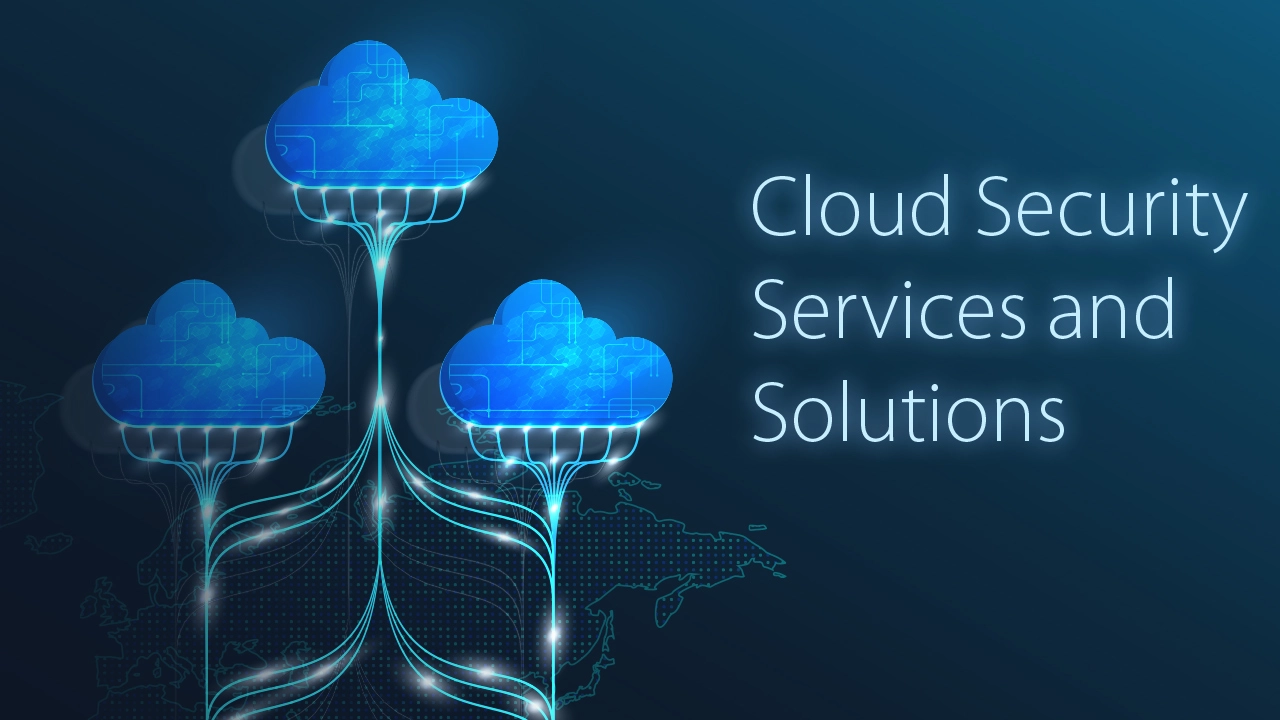Index
- Introduction
- The Growing Need for Cloud Security
- Key Features of Cloud Security Services
- Protecting Data in the Cloud
- Ensuring Compliance and Regulatory Requirements
- Mitigating Risks with Cloud Security Solutions
- Scalability and Flexibility of Cloud Security Services
- Cost-effectiveness and ROI of Cloud Security Solutions
- Future Trends in Cloud Security Services and Solutions
- Conclusion
- FAQs
Along with time, technology and many other innovation-based factors have evolved concerning how organizations function digitally. The majority of companies now cherish the benefits of digital data sharing and storage. It makes their work massively efficient and convenient.
Nowadays, technology is more widely employed and highly trusted. Due to its rapid growth in the last few years, technological evolution has taken over the world, with which the cloud proliferation of cloud computing has massively increased.
The importance of cloud security services is now more significant than ever. The are so many benefits of cloud computing benefits. However, organizations cannot reap its fullest benefits without understanding the full potential of cloud security services and solutions. In this blog, we will take a look at its significance.
The Growing Need for Cloud Security
Cloud security is essential Because the majority of companies are already using cloud computing in a certain form or another. This high rate of public adoption of cloud services is reflected in many predictions that the worldwide market for public cloud services will keep on growing.
The IT experts remain stressed about moving more data and applications to the cloud because of governance security and compliance issues. When their content is protected in the cloud, they stress that highly sensitive business data and intellectual property may be invaded and exposed through leaks because of increasingly sophisticated cyber threats.
Key Features of Cloud Security Services
Here are the top features of cloud security solutions that you always need to be on the lookout for:
-
Data encryption
Make sure it is possible to have all data encrypted Both at rest and in transit. Using a symmetric key, data is encrypted as it is written for storage. Data is encrypted in transit across wide networks or wireless networks by transporting over the safe channel using transport layer security.
-
Data leakage prevention
You need to look for providers who have built-in and safe cloud computing controls that assist in preventing issues like another rice access and data Leak. They should enable you to apply more concise Security controls to your most sensitive and valuable data.
-
Compliance
Lastly, you need to look for Content life cycle administration capabilities such as disposition and document retention. Explore whether the provider services are audited independently and are certified to meet difficult global standards. A provider who concentrates on Constant compliance may guard your organization from legal troubles and make sure you are using the most updated security practices.
Protecting Data in the Cloud
Safeguarding data in the cloud involves many measures to ensure its integrity, confidentiality, and accessibility. There are a few ways you can safeguard your data in the cloud:
-
Regular audits
Regular audit permissions and having a close look at access logs help detect any suspicious activities.
-
Compliance adherence
You need to ensure compliance with relevant standards and regulations, such as HIPAA and GDPR, based on the nature of the data.
-
Employee training
Teach your employees about the best practices for security and the significance of data security. It’s your ultimate tool for data protection.
Ensuring Compliance and Regulatory Requirements
Making sure that regulatory requirements and compliance with cloud security services are met includes various key steps.
Understand the regulations and compliance needs that apply to your company, depending on the industry. It can be GDPR or SOC 2 and others.
You then need to select a cloud service provider that offers compliance certifications.
Regular audits are a must to ensure regulatory requirements and compliance. Make sure there are measures that can safeguard the data, such as anonymization and encryption. Carry out comprehensive documentation for security practices, compliance efforts, and policies. This document should have evidence of audit findings, compliance activities, and remediation efforts.
Mitigating Risks with Cloud Security Solutions
Using cloud security solutions, Mitigating risk concerns includes issuing a combination of proactive measures to safeguard the data on the cloud.
Make sure you carry out a comprehensive risk assessment to identify any potential risks or vulnerabilities that can be exposed.
You have to implement a robust set of security controls to mitigate the identified risks. Firewalls and encryption are the two best things to have by your side.
Scalability and Flexibility of Cloud Security Services
Cloud computing grants you a centralized location for applications and data with various endpoints and devices needing security. Cloud security computing centrally manages every of your device’s applications and information to make sure everything is protected. The centralized location enables cloud security organizations to carry out tasks more easily, such as implementing recovery plans for disasters or streamlining network event monitoring.
Cloud computing generally allows you to scale with new demands, granting more applications and data storage whenever you require it. It efficiently scales with your cloud computing services. When you need to make changes, the centralized nature of cloud security enables you to effortlessly and efficiently integrate new applications and other features without sacrificing data safety.
Cost-effectiveness and ROI of Cloud Security Solutions
One of the major benefits of using cloud computing is that you will not be required to pay for dedicated hardware. Not having to invest in dedicated hardware assists. You primarily save a massive amount of funds, and it may also help you update your security.
Future Trends in Cloud Security Services and Solutions
AI and machine learning are massively popular for third detection and response. These technologies may analyze massive data sets to notice anomalies and patterns, increasing real-time security.
As Serverless computing becomes more famous, so do the security considerations. Safeguarding serverless functions from valuabilities and threats is vital.
Conclusion
Companies depend more on cloud processing and storage; however, CIOs May have reservations regarding storing their content with a third party. Typically, they are apprehensive that abandoning the perimeter security model might imply giving up Their solitary way of controlling access. This fear turns out to be unfounded.
Security in cloud computing is vital to any organization looking to keep its data and applications protected from bad parties. Maintaining a strong cloud security posture assists the organization in achieving many benefits from cloud security services in cybersecurity.












